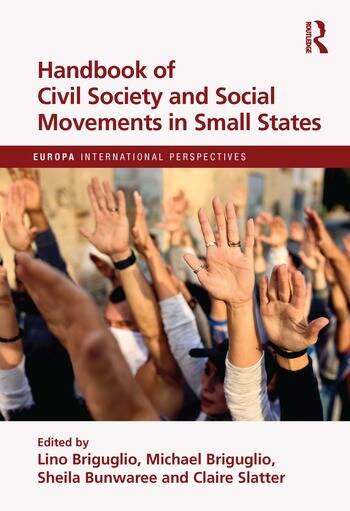

Regional Webinar and Book Launch Series on "Civil Society and Social Movements in Small States"
Thu, 16 Mar 2023 - Thu, 30 Mar 2023
Online
Organized by: University of Malta
Contact: michael.briguglio@um.edu.mt
Event: Regional webinar and book launch series on "Civil Society and Social Movements in Small States"
Date: 16, 23 and 30 March 2023
Venue: Online event (via Zoom)
Dates & Times:
Europe, Indian Ocean, Africa: 16 March 2023, 15:30 – 17:00
Caribbean: 23 March 2023, 16:00 – 17.30
South Pacific: 30 March 2023, 22:00 – 23.30
The Islands and Small States Institute (ISSI) of the University of Malta is organizing three regional webinars to launch the book "Civil Society and Social Movements in Small States".
The events will be held on Zoom on 16 March 2023 (15:30 CET) relating to the chapters on small states in Europe, Africa and the Indian Ocean; on 23 March 2023 (16:00 CET / 10:00 GMT- 17:00) relating to chapters on small states in the Caribbean Region; and on 30 March 2023 (22:00 CET / 9:00 of 31 March GMT+12:00) relating to chapters on small states in the South Pacific.
Registration for all events is required and can be made online.
Each of the three webinars will be addressed by four chapter authors from the region, followed by comments and questions by the audience.
For further information, do not hesitate to contact us by sending an email.
About the Book
Edited by Prof. Lino Briguglio, Dr. Michael Briguglio, Sheila Bunwaree and Claire Slatter, “Handbook of Civil Society and Social Movements in Small States” depicts the way civil society encompasses social movements, which are considered to be loosely organized collective campaigns in pursuit of social goals. It deals with particular characteristics of small states, including limited ability to reap the benefits of economies of scale, high degree of exposure to forces outside their control, and the proximity of politicians to the voters, often leading to clientelistic relationships and patronage networks.











